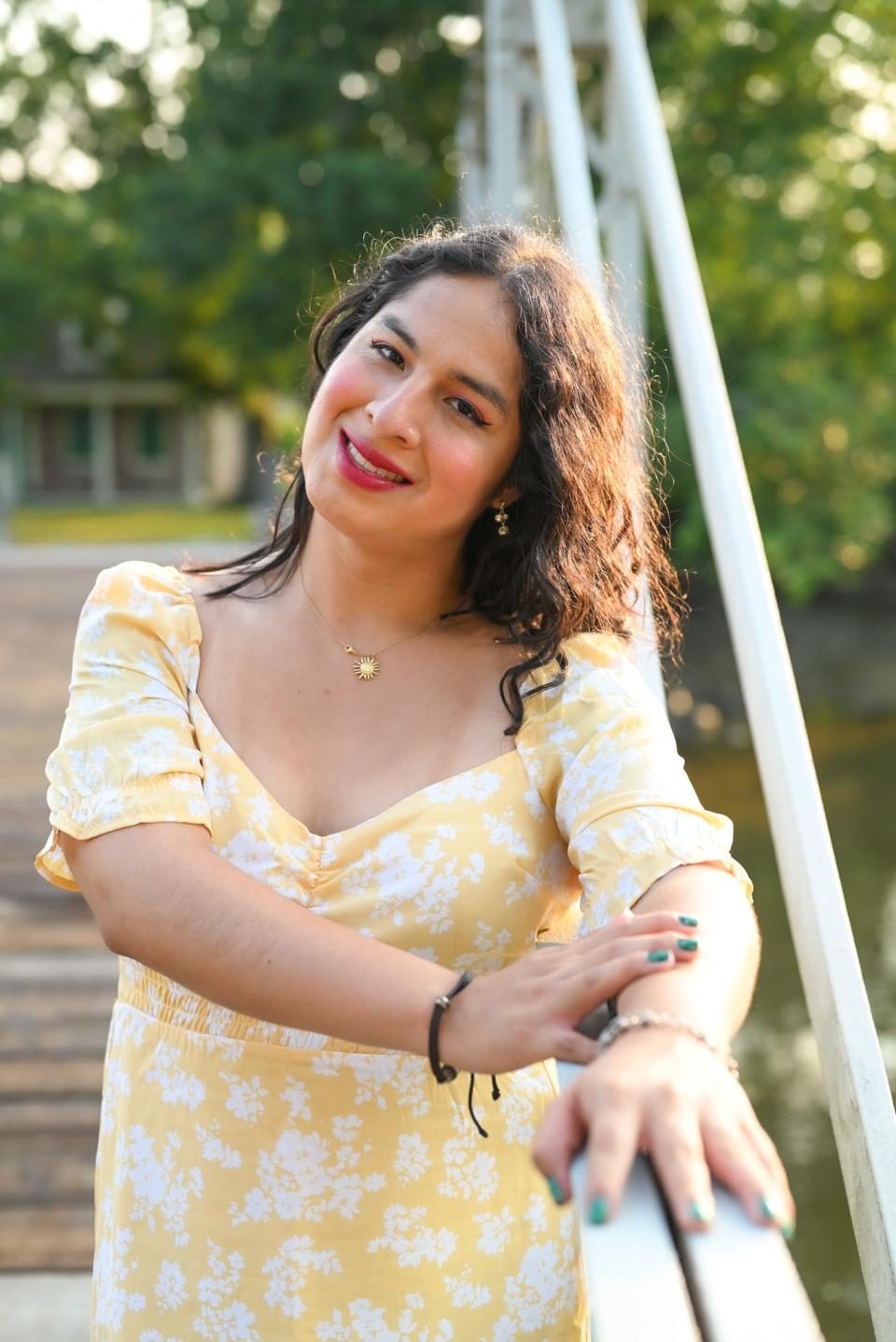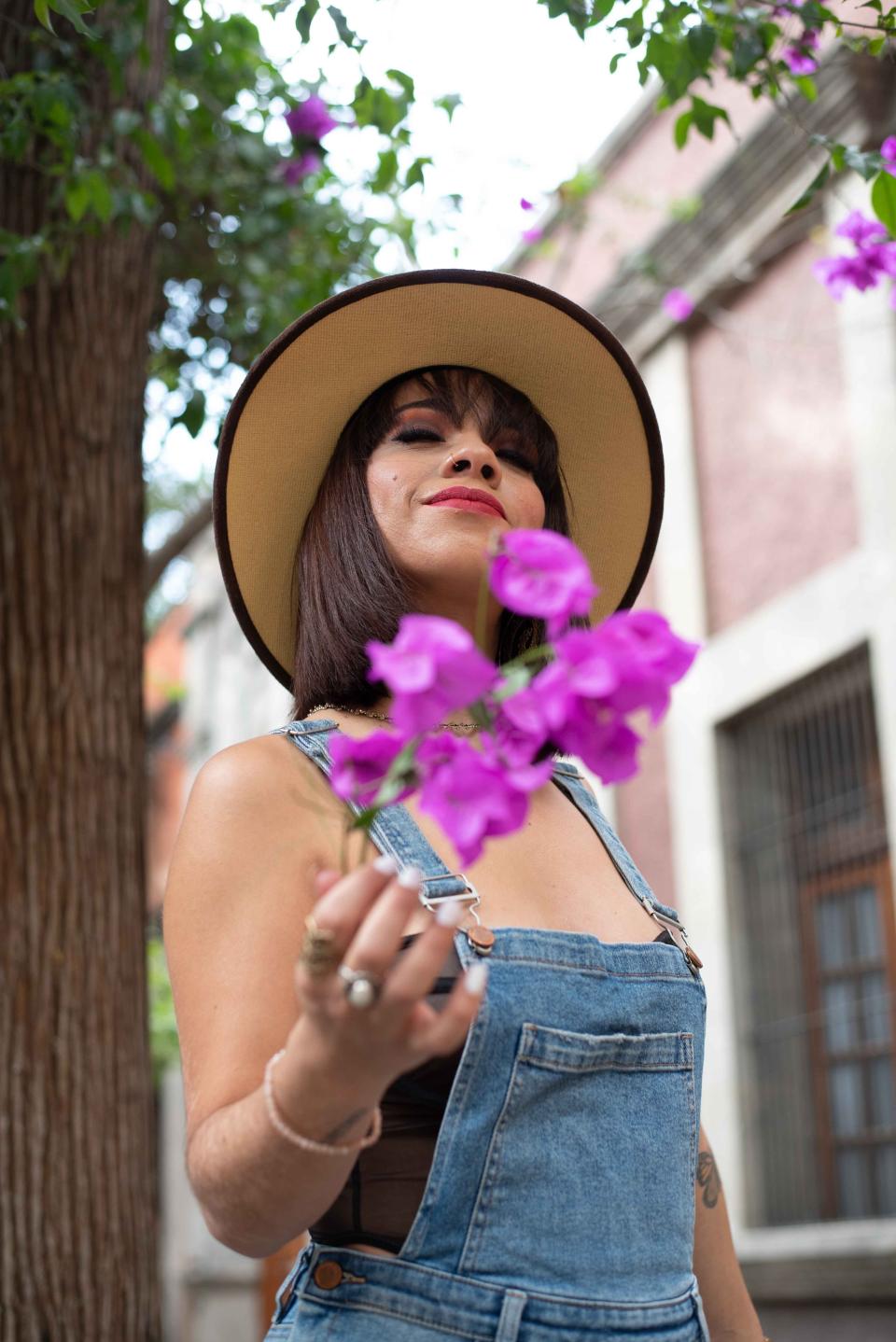'The US is very individualistic, and I wanted community': What is rematriating?
In 2013, when Joselyn Gerarda Whitaker Rae was 22 years old, she took a trip from New York to Huánuco, Peru, the city where she was born but hadn’t been to since she was adopted by a white American family as a 1-year-old.
Whitaker Rae, whose adoptive parents had recently died, was in search of family and home, but she only had the village where she was born and the name of her birth mother. After four hours of searching for information at the mayor’s office, an outdoor artisan offered to yell Whitaker Rae’s birth mother’s name through a megaphone. The woman’s sister-in-law responded to the call, informing Whitaker Rae that her mother had died but that she had relatives in Lima. Three years later, she moved to the Peruvian capital to join them.
Whitaker Rae is part of a growing number of first- and second-generation Latinos who are rematriating – a term used as an alternative to repatriation, reflecting a return to one’s cultural way of life in their motherland – to Latin American countries where they or their parents were born.
What is Hispanic Heritage Month?: Latinos and Latino culture can be celebrated year-round
Reconsider travel?: Safety experts talk violence in Mexico tourist spots

To be clear, Latin Americans returning to their homeland isn’t new. Throughout history, migrants from Mexico, Central and South America and the Caribbean have been forced to go back to their countries of birth as a result of deportation or other state-sanctioned campaigns like the 1942 Bracero Program. Other times, migrant workers have participated in circular migration, a pattern of mobility between one’s home and host country, for economic opportunities. But increasingly, younger generations have been moving back to their ancestral lands, seeking reconnection, a sense of belonging, healing and change.
Three months after her 2013 trip to Huánuco, Whitaker Rae found the courage to call her biological sister from whom she had been separated. After that call, the two spoke every day, working through language barriers to understand each other and build a relationship.
Whitaker Rae moved to Lima in 2016, after completing her master’s degree in philosophy from Fordham University in New York City. Now 32 years old, she teaches English in Lima.
“I was an only child in the U.S. I didn’t have an immediate family anymore, and the rest of my relatives were spread around the country. The U.S. is very individualistic, and I wanted community. I wanted to spend time with my biological family. I felt more at peace here, despite the country being more conservative,” said Whitaker Rae, who is trans.
Story continues below.
'We’re so focused on working that we forget to live sometimes'
In the coastal Colombian town of Puerto Colombia, Ailyn Robles understands. In 2018, the New Jersey-born Colombian American was burned out. She was a 28-year-old nonprofit professional disillusioned by toxicity at the organization she worked for and exhausted by the workload of her full-time job, freelance gigs and creative projects she needed to survive in costly New York City. In need of restoration, she took a sabbatical, traveling throughout her parents’ homeland to learn more about her Colombian roots and understand where her sadness was coming from. She initially extended her three-week trip for a year, and then she decided to stay for good.
“In the States, I was always working, studying and looking for ways to help my people. We’re so focused on working that we forget to live sometimes,” Robles, now 31, said.

In the South American country, life hasn’t exactly been easier – but it has been more fulfilling. Robles, who didn’t have a family home to return to in New Jersey, planted roots in Puerto Colombia, where she worked call center jobs, built a community by offering queer and feminist activists free headshots, met a guy while learning to surf and gave birth to her daughter, Ilé Mar.
When the pandemic hit, her already precarious life, which her family never understood, became even more difficult. She lost her job, and her partner was forced to close his restaurant. With no income, her relatives asked her to come back to the U.S., where they said she’d be safe. But home and security had taken on new meaning in the years she had been living in Colombia.
“I used to think I had no home, that no place belonged to me, but I know now that both of these countries are my home, and that neither of them is safe. Do I feel safe in a supermarket or subway station in New York? No. Colombia has always felt dangerous, but at least you can rest. The quality of life is just respected here in a different way,” she said.
Robles is aware that, in many ways, it’s her U.S. citizenship that allows her to experience relaxation, freedom and joy in the land her family once fled. This is the tension that many young rematriators contend with: leaving the U.S. as marginalized Latinos and entering Latin America as privileged foreigners.
Even without riches or prestigious family pedigree, nonnatives, and especially Americans, are afforded advantages, such as job opportunities and resources, and find themselves having to make sense of new complex identities.
'I was humbled right away'
When Frances Medina, 33, moved from Brooklyn, N.Y., to San Juan, Puerto Rico, in 2018, the Nuyorican went to reconnect with her ancestral land and offer her talent and connections as a communications strategist and producer to uplift the stories of Puerto Ricans in their fight for justice, recovery and freedom.

“I was humbled right away,” Medina said. In many of these spaces, she was called a “gringa,” not as an insult but as a reminder of her positionality.
Medina was initially confused. Like her new friends, she grew up on arroz con gandules and salsa. Like them, she read literature on Pedro Albizu Campos and marched against La Junta. Unlike locals, though, she thought her University of Michigan degree afforded her with more understanding and solutions to the plight locals have lived with and fought their entire lives.
“I used to be a brat; I used to have that mentality of, ‘I do advocacy, and you need to listen to me.’ But no one wants that or responds to that, so your ego gets deflated quickly,” Medina said. “Now I come from a place of respectful and compassionate curiosity, not an almighty Diasporican.”
A local's beach guide to Puerto Rico: Which beaches to visit, what to know in San Juan, Culebra and more
A local's beach guide to Uruguay: Which beaches to visit, what to know in Maldonado and Rocha
'In the diaspora, we fetishize the island'
In the neighboring Dominican Republic, Bonao-based Melania Luisa Marte can relate. When the 28-year-old relocated to the Caribbean nation in 2020, she had just planned to temporarily move in with her partner during the pandemic. In many ways, she had romanticized the trip, viewing it as a time to immerse herself in the land and culture she had written so much about as a poet and to write her best work while in paradise. But then came the reality of island life: Stores weren’t open 24/7, traffic felt unbearable and life was really, really slow.
“In the diaspora, we fetishize the island. We think of it as an exotic, tropical paradise where everything is perfect. There are red carpets to beaches and rivers are at your disposal. It’s a utopia. And yes, island life is a type of paradise, but I had to let go of looking at this island as something that was mine to consume, devour and romanticize,” she said.

With help from her partner, Marte was able to recognize how she, an artist whose work has long critiqued social injustice, was “aiding and abetting capitalism and colonialism” by expecting that people and businesses needed to cater to her, on her time. In unlearning this colonial mentality – or, as she calls it, “the white man in my head” – she has been able to fall in love with the nonfantastical version of the Dominican Republic, where she now lives and has started a family.
It has taken many Latino rematriators time to appreciate the slower pace of life across Latin America relative to the hustle and bustle in much of the U.S. However, through leisure, many have found time for reflection, rebalance and reconnection, not just to the land but also to self.
'I am living more intentionally'
When Kim Guerra left Los Angeles for Mexico City in 2020, the creative entrepreneur and therapist relinquished so much of what she had thought made up who she was: around-the-clock workload, evening and weekend social events and her community. While the 30-year-old Mexican American grew up moving back and forth across the border, her family is not from the capital. There, she had no one but her now-ex-girlfriend.

While this solitude felt scary at first, it later became an opportunity – an invitation to heal the traumas she had known in Mexico, to embrace her queerness away from her religious family, to build authentic friendships based on true connection rather than social capital, and to feel at home, on this land and in her body.
“Being back as an adult and reconnecting, on my own terms, with my culture and with myself as a woman and as a queer person has been really powerful. I’ve been able to be, to listen and heal in ways I didn’t have space to in LA because everything is so cluttered. I am living more intentionally and falling in love,” she said. “It feels like coming home.”
For Whitaker Rae, the Peruvian adoptee, being in her homeland has also allowed her to wholly be herself.
“Living here has allowed me to be me. I transitioned here. Without Peru, I would have never been comfortable with myself, discovering myself and finding happiness in myself and my family,” she said.
This article originally appeared on USA TODAY: Why some Latinos are returning to their motherland

